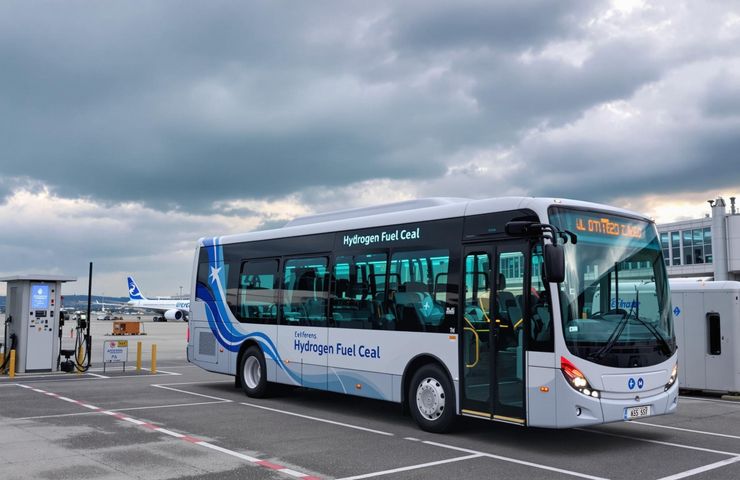Powering Up Disaster Resilience: PDX's Innovative Hydrogen Fuel Cell Electric Buses
Key Ideas
- Portland International Airport is collaborating with research institutions and the Department of Energy to explore the feasibility of using hydrogen fuel cell electric buses (FCEBs) as zero-emission shuttles and mobile backup generators.
- The initiative aims to enhance disaster readiness in the earthquake-prone region by leveraging the fast refueling, clean operation, and grid-independent nature of hydrogen fuel cells, potentially revolutionizing energy resilience.
- Supported by federal grants, this project has the potential to showcase the applicability of fuel cell technology in critical infrastructure nationwide, offering a versatile and sustainable solution for energy and emergency challenges.
- The study's outcomes could mark a significant advancement in the hydrogen infrastructure domain, influencing how airports, cities, and transportation systems embrace sustainability and preparedness in the face of disasters.
Portland International Airport (PDX) has embarked on a groundbreaking collaboration with PNNL, Sandia National Laboratories, and the U.S. Department of Energy to investigate the utilization of hydrogen fuel cell electric buses (FCEBs) as a strategic solution for enhancing disaster resilience. The project revolves around conducting a feasibility study to assess the potential replacement of the current compressed natural gas shuttle fleet with zero-emission FCEBs, which can also serve as mobile backup generators during emergencies such as earthquakes. Situated in the earthquake-prone Cascadia subduction zone, the airport's shift towards hydrogen technology aims to fortify its energy system's flexibility and reliability. Hydrogen fuel cells offer rapid refueling, eco-friendly operation, and the ability to sustain power supply independent of the main grid, making them a compelling choice for critical infrastructure. This pioneering initiative, supported by federal hydrogen grants, not only addresses Portland's preparedness needs but also sets a precedent for deploying fuel cell technology in essential facilities nationwide. By blending sustainability with emergency readiness, the project showcases a multi-faceted approach to energy challenges. Anticipation surrounds the imminent release of the study findings, as the results have the potential to propel the hydrogen infrastructure movement forward, transforming how various sectors tackle sustainability and resilience in the midst of crises.
Topics
Fuel Cells
Infrastructure
Innovation
Transportation
Sustainable Energy
Emergency Preparedness
Government Grants
Latest News
